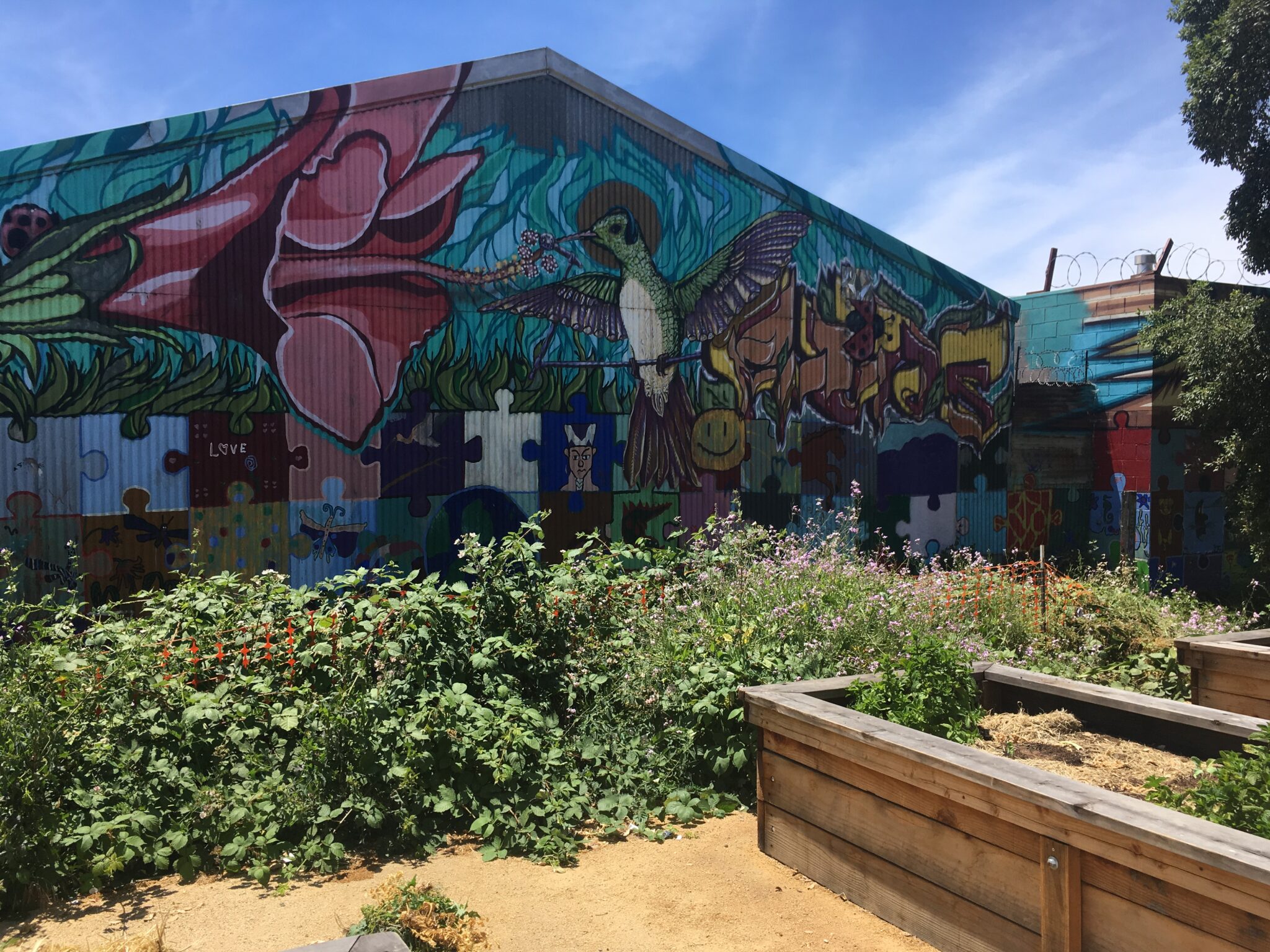Policy Brief
Urban Agroecology: An Essential Resource for Times of Crisis and Beyond
Urban farms merit status as protected and planned spaces in the 21st-century city.

Urban farms merit status as protected and planned spaces in cities across the East Bay, the state of California, and the U.S. They are a vital “public good” worthy of public investment, in that they foster community stewardship and promote ecological restoration, environmental education and public health. They help balance the distribution of benefits and burdens of urban development, enabling vibrant, multicultural, equitable, and liveable cities. They provide food, ecosystem services, community education, and well-being.
The Bay Area is poised to join a group of leading cities and regions in the US advancing the paradigm of local, healthy food production as an inherent right of citizens in the 21st century “Agroecological City.” There is a vibrant yet precarious network of urban farms and gardens in the East Bay providing critical services to vulnerable community members. They face significant insecurities related to land tenure, funding and revenue, food safety, labor, and food distribution capacity.
Our research demonstrates the following public policies, programs, and support systems are needed to support the existence of these agroecological spaces and allow them to serve as vibrant, protected green infrastructure:
- Improve access to and tenure security of municipal land, both public and private.
- Ensure regional coordination that links public and private land access with integrated programming.
- Develop revenue-generating opportunities for urban farms through public investment or public procurement commitments.
- Invest in public distribution infrastructure.
- Integrate urban agriculture into affordable housing policy.
- Explore creative models of land tenure that increase food and land sovereignty for communities of color.
This policy brief is based on research completed by an interdisciplinary team of faculty, graduate students, Cooperative Extension advisors, and community stakeholders between 2018-2020 (including Charisma Acey, Joshua Arnold, Leah Atwood, Rob Bennaton, Timothy Bowles, Sarick Matzen, Coleman Rainey, Paul Rogé, Alana Siegner, and Jennifer Sowerwine). The research was funded by the Foundation for Food and Agriculture Research and the Berkeley Food Institute. The research team completed 35 surveys of urban farmers and five in-depth interviews.